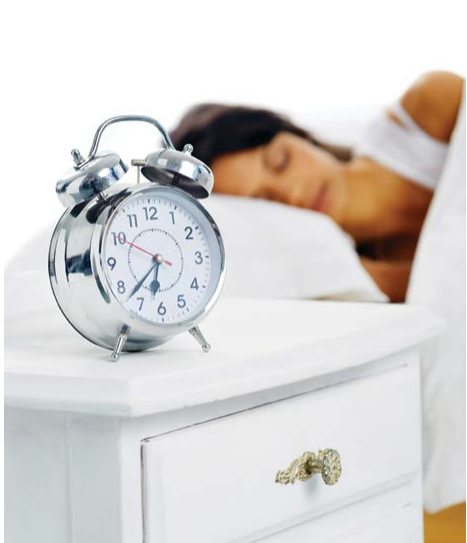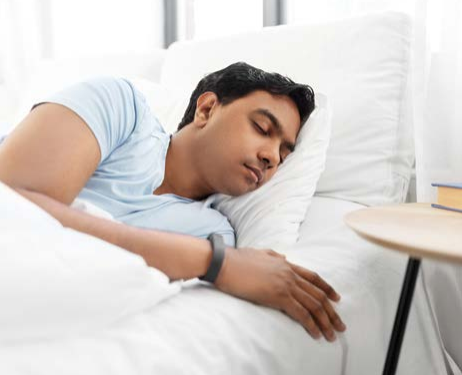HOW TO IMPROVE SLEEP? – A Doctor’s Prescription
Increasingly there is a greater appreciation of the benefits of getting adequate quantity and equally important, quality sleep. There is recognition that good sleep is as key as regular exercise and a healthy diet to ensure optimal mental and physical fitness of individuals. In a detailed chat, Dr Divyaa Mahesh a Clinical Consultant with leading hospitals across Karnataka, spoke to your correspondent on how to improve sleep. Edited Excerpts:
Q Why is there now suddenly so much attention being paid to sleep?
I don’t think it is sudden but is a testament to the growing awareness of the importance of sleep. It is now scientifically recognized that sleeping well has a direct impact on one’s mental and physical health. The amount, as well as the quality of sleep, has an influence on things like your energy levels, emotional balance, productivity, weight, disease risk and overall cognitive abilities. Unfortunately, because of our modern lifestyles, both sleep quantity and quality sleep have alarmingly declined for children as well as adults. Our lifestyle choices and habits have a bearing on our sleep patterns. There is however increasing awareness of the dangers of disturbed sleep and this is a welcome development.
It is now scientifically recognised that sleeping well has a direct impact on one’s mental and physical health. It is because of our modern lifestyles both sleep quantity and quality sleep have alarmingly declined for children as well as adults
Q How can one improve quality of sleep?
Human beings are largely creatures of habit. There are a number of steps one can take to improve both the quantity and quality of sleep. The first and foremost is to stick to a sleep schedule and try to adhere to it. A healthy adult requires anywhere between 7-8 hours of quality sleep.
Anything less or anything more is detrimental to the long-term health of individuals. It is not also just the number of hours. One should try to go to sleep as well as get up at the same time every day. This sets up a body clock.
Even on weekends try and maintain a similar schedule with at best a variation of an hour. For whatever reason, if one needs to catch up on sleep – due to late-night work or some other emergency – my suggestion would be to try to take a daytime nap rather than sleep in late, to make up for the sleep deficit.
However, while short power naps during the daytime of 15-20 minutes are recognised, to boost our productivity, any habit of regular long day-time naps should be dissuaded as it affects, the quantity and quality sleep at night. This is why I would still advocate sticking to a schedule as much as possible.
All our bodies have a natural time-keeping clock called the circadian rhythm. This is why one needs to ensure bright light exposure during the daytime. This tells our brain, body and hormones when it is time to be awake when to take rest etc. I strongly believe spending some time in the early morning sunlight is good for the body to adapt to this circadian rhythm.
If somebody is living in a geographical area like say in the highlands of Uttarakhand or the mountainous regions of the Himalayas where there might not be sunlight available in adequate quantity or if their job pattern demands it, I would suggest that they spend time at least time in artificial bright lights when they need to be awake.
All our bodies have a natural time-keeping clock called the circadian rhythm. This is why one needs to ensure bright light exposure during the daytime This tells our brain, body and hormones when it is time to be awake, when to take rest
Q Ok, apart from a fixed schedule, what else?
One needs to pay attention to what they drink and eat before they go to sleep. Going to bed hungry or over-stuffed is not a good move.
Ideally the last meal or drink at night should be consumed at least 2-3 hours before a person retires for the day so as to provide an opportunity for our internal systems to process it. Avoid things like Caffeine (present in Coffee and Tea), sugary beverages or those loaded with artificial sweeteners (in aerated drinks), nicotine (cigarettes) and alcohol before going to bed. Both Caffeine and Nicotine are well-recognised stimulants which can keep you awake for hours. While
alcohol can initially make you drowsy, it causes disturbed sleep and thus should either be avoided or taken in moderation.
A good mattress can reduce or even eliminate things like back pain, shoulder pain or stiffness of the neck. Invest in a good quality mattress and pillow and replace them at least once every five years. To improve quality sleep one should consult a healthcare provider to rule out sleep disorders like sleep apnea.
Apart from intake of solids and/ or liquids, one also needs to restrict blue light exposure in the evenings and at late night. This means not too much television, phones and tablets. While exposure to daylight stimulates us to be awake, blue light from these electronic devices has a similar effect, tricking our circadian rhythm to believe that it is still daytime. This blue light also has the effect of reducing the production of hormones like melatonin with us, which are crucial for us to relax and get sleep.
If somebody is suffering from severe insomnia, they could take melatonin supplements. Ideally, I would like them to undertake other steps before taking medication even if they are supplements and one should never try them without the guidance of a properly trained physician.
There are some advocates for natural’ supplements like Gingko Bilboa, Lavender, and Valerian Root while some others swear by chemicals like glycine, magnesium or L-theanine. All these need to be taken under medical supervision and after consulting a qualified physician and one cannot emphasise enough that these are not silver bullets but some have reported benefits by using them.
Regular vigorous exercise like walking, jogging or any kind of physical activity (depending on age, fitness and other factors) can also aid your sleep. Daily going out of the confines of one’s own dwelling is also advantageous. As I said earlier, my own suggestion would be to try out changes in lifestyle before ingesting anything whether natural or chemical.
Q What role does sleeping on the right kind of mattress, as well as optimising bedroom environment have, in all of this?
Huge. Creating an environment for restful quality sleep is very important. The bedroom should ideally be cool, calm, dark and quiet with furniture arranged comfortably. The room should have an ambient temperature, and a cosy bed and should not have harsh lights or external noise streaming in. Several sleep relaxation techniques can also be practised.
From listening to soothing, relaxing music or reading preferably a non-electronic device like a book or a newspaper or a magazine, to taking a hot bath, visualising being in a favourite calm place, deep breathing or even meditating a number of measures can be taken. If it is feasible one can opt even for a gentle massage before going to bed as for some it helps them to really unwind.
Apart from this, I cannot underscore enough the importance of a good bed, mattress and pillow in aiding a good night’s rest.
A good mattress can reduce or even eliminate things like back pain, shoulder pain or stiffness of the neck. Invest in a good quality mattress and pillow and replace them at least once every five years if not more. What constitutes a good mattress varies from individual to individual. They need to experiment and go with what works for them. Also, to improve sleep one should consult a healthcare provider to rule out sleep disorders like sleep apnea. While estimates vary, at least one in five people could be suffering from sleep apnea where your breathing is repeatedly interrupted while sleeping.
Managing stress in our modern world with its constant demand for our attention, having a routine, regular exercise, meditation, deep breathing and care in our (food) consumption habits, all could thus help improve our sleep.



